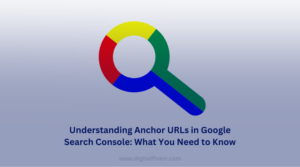Google Search May Now Use OG Title for Title Links

Google Search May Now Use OG Title for Title Links
Google’s continuous evolution in how it displays search results can significantly impact how websites appear to users. One of the latest updates indicates that Google Search may now utilize the OG (Open Graph) title for title links in search results. This change could have important implications for your SEO strategy and how your content is presented to users.
Google Search updated its search documentation to reserve the right to use the OG title meta data for your title link in the Google Search results. That adds a ninth source Google may pull from for your title links.
List of title link sources. Here is list of sources Google may use for your title link:
1. Content in <title> elements
2. Main visual title shown on the page
3. Heading elements, such as <h1> elements
4. Content in og:title meta tags
5. Other content that’s large and prominent through the use of style treatments
6. Other text contained in the page
7. Anchor text on the page
8. Text within links that point to the page
9. WebSite structured dataWhat is the OG Title?
The OG title is part of the Open Graph protocol, originally developed by Facebook, to help integrate content into the social media platform. The OG title is a specific HTML meta tag (og:title) used to define the title of a webpage when it is shared on social media. It often differs from the standard HTML title tag, which is used primarily by search engines to display the title of a webpage in search results.
For example, if your HTML title tag is “10 Tips for Effective Content Marketing,” your OG title could be “Learn 10 Proven Content Marketing Strategies to Boost Engagement.” The latter is often more compelling for social media users.
Google’s Shift: OG Title in Search Results
Historically, Google has used the HTML title tag as the primary source for the title links in search results. However, recent observations and updates suggest that Google may now pull the OG title to display as the title link in search results. This could happen when the OG title is deemed more relevant or engaging based on the context of the search query.
Why This Matters for SEO
This shift has several potential implications:
# Increased Control Over Search Titles
If Google starts using the OG title more frequently, website owners and SEO specialists may have greater control over how their pages are presented in search results. This allows for crafting more compelling and click-worthy titles specifically designed for the user experience.
# Aligning SEO and Social Media Strategies
This change highlights the importance of aligning your SEO strategy with your social media strategy. By optimizing both the HTML and OG titles, you can ensure that your content is both search engine-friendly and engaging on social platforms.
# Potential for Better Click-Through Rates (CTR)
If the OG title is more engaging than the HTML title, using it in search results could lead to higher CTRs. This is because the OG title is often crafted to be more attention-grabbing, tailored for social media audiences who tend to skim content quickly.
# SEO Best Practices May Need Revisions
With this update, SEO best practices might evolve to include optimizing OG titles with as much care as the HTML title tag. Ensuring that both titles are optimized for keywords and user intent will be crucial.
How to Optimize for the OG Title
To take advantage of this potential change, consider the following tips:
# Craft Compelling OG Titles
Make your OG title as engaging as possible. Focus on creating a title that captures attention, clearly communicates the value of the content, and includes relevant keywords.
# Consistency is Key
Ensure that your OG title aligns with the overall message of your content. While it should be engaging, it must also accurately represent the page’s content to avoid misleading users.
# Test and Analyze
As with any SEO strategy, it’s essential to test the impact of your OG titles on search performance. Monitor changes in CTR and rankings to determine the effectiveness of your OG titles in search results.
# Use Tools to Optimize
Utilize SEO tools to check how your OG title might appear in search results and social media. Tools like Yoast SEO for WordPress can help you manage and preview OG tags.
Conclusion
Google’s potential shift towards using OG titles in search results presents a unique opportunity for website owners to refine how their content is presented to users. By optimizing OG titles, you can potentially increase your visibility, improve CTR, and align your SEO efforts with broader digital marketing strategies. As with any change in search algorithms, staying informed and proactive will be key to maintaining and enhancing your online presence.




